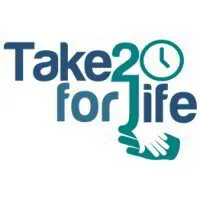LGBTQ+
The LGBTQ+ community is varied, with a wide range of difficulties, identities, and experiences. Community members, however, are disproportionately vulnerable to suicide and other mental health issues. The materials and information in this section can be used by you personally or to support family members who identify as LGBTQ+.
How To Take Care Of Yourself
If you're having trouble, call or chat with Lifeline. We’re discreet and accessible around the clock. Crisis counselors are on hand to listen to you without passing judgment and offer you support.
- Know you are not alone: In addition to the Lifeline, there are resources at the bottom of this page where you can connect with other LGBTQ+ community members. For more information on how some LGBTQ+ people have handled difficult situations, see the stories of hope and recovery included below in the resources section.
- Build a network of supporters: Create a support system↗ in your life that will keep you safe and that you can rely on when you’re feeling suicidal or depressed.
- Talk to someone: Don’t keep your suicidal ideas to yourself. Lean on your network of friends and family, look for a therapist↗ or support group↗, or call the Lifeline for assistance.
- Make safety plan↗: If/when you experience depression, suicidal thoughts, or a crisis, have a step-by-step plan prepared so you can begin at step one and work your way through the steps until you feel secure..
How to Help
We all have a role in preventing suicide. Learn how to support and be an ally to your LGBTQ+ loved ones.
- Be a friend: Show your support for the LGBTQ+ community in public. By affirming their identity, using their pronouns, and making a commitment to supplying a judgment-free and secure space for everyone, make sure you are supporting loved ones.
- Know the facts: More than 80% of LGBTQ+ youth have experienced violence or threats, and the probability that an LGBTQ+ person would self-harm more than doubles for every incident of abuse.
- Ask and listen: Participate actively in your loved ones’ networks of support and communicate with them frequently. Ask directly whether they exhibit any suicide warning signs. Inform them that discussing suicidal thoughts is OK. Listen to their narrative without judging or offering suggestions.
- Remember to look after yourself and connect them to resources: Work together to secure any help your loved one might require. The Lifeline is always available to talk or chat, both for crisis intervention and to help allies, if you’re not sure where to begin.
- Strong familial ties, secure environments at school, and adult support can all help to prevent depression and suicidality in LGBTQ adolescents (Committee on Adolescence 2013↗).
- Family and community support: Support from friends, relatives, and reliable adults may make a huge difference for transgender children and young people. According to a recent study, transgender kids whose families supported them in their gender identity had comparable psychological health to their non-transgender counterparts (Olson 2016↗).

